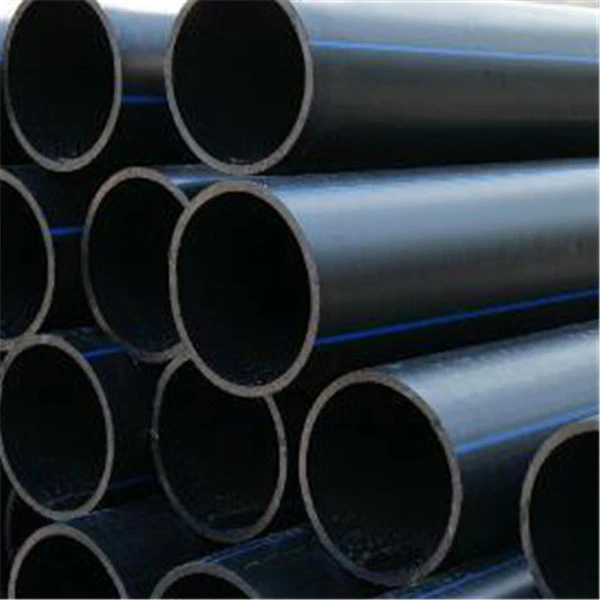Dec . 16, 2024 02:16 Back to list
natural hdpe sheet
Understanding Natural HDPE Sheets An Overview
High-Density Polyethylene (HDPE) is a versatile plastic used in a variety of applications, thanks to its high strength-to-density ratio and resistance to impact and moisture. Among its various forms, natural HDPE sheets have gained popularity for their numerous industrial applications. This article delves into the characteristics, manufacturing processes, applications, and benefits of natural HDPE sheets.
What is Natural HDPE?
Natural HDPE refers to high-density polyethylene that is uncolored, providing a translucent appearance. It’s commonly utilized in applications where aesthetic qualities are not a primary concern. The natural color allows for easy identification and recycling, making it an environmentally friendly choice. Natural HDPE is produced through the polymerization of ethylene, resulting in a polymer that offers high tensile strength and excellent resistance to chemicals.
Characteristics of Natural HDPE Sheets
Natural HDPE sheets are known for their exceptional durability and strength. Some key characteristics include
1. Chemical Resistance Natural HDPE is resistant to a wide range of chemicals, including acids, bases, and many solvents. This makes it suitable for various industrial applications where contact with hazardous substances is likely.
2. Moisture Resistance Unlike other materials that can absorb water, natural HDPE does not absorb moisture, which helps prevent swelling and degradation over time.
3. Impact Resistance The high-density structure provides excellent impact resistance, making these sheets a reliable choice for applications requiring durability.
4. UV Stability While not as robust as colored versions, natural HDPE sheets can still withstand exposure to UV light without significant degradation, making them suitable for outdoor use with proper protective measures.
5. Lightweight Despite their strength, natural HDPE sheets are relatively lightweight, which aids in easy handling and installation.
Manufacturing Process
The production of natural HDPE sheets involves several stages. Initially, ethylene is polymerized under controlled temperatures and pressures to form high-density polyethylene. The resultant plastic is then processed and extruded into sheets of varying thicknesses and dimensions. The manufacturing process may involve adding additives to enhance certain properties, depending on the intended application.
Applications of Natural HDPE Sheets
natural hdpe sheet

Natural HDPE sheets are employed in diverse industries due to their versatile nature. Some common applications include
1. Packaging Natural HDPE is widely used to manufacture containers and bottles for food and industrial products, thanks to its chemical resistance and safety.
2. Food Processing The non-toxic and clean nature of natural HDPE makes it ideal for food processing applications, including cutting boards and food storage solutions.
3. Construction In the construction industry, natural HDPE sheets are often used for waterproofing membranes, insulations, and as structural elements due to their strength and moisture resistance.
4. Signage Both indoor and outdoor signage often incorporates natural HDPE sheets because they can withstand various weather conditions while maintaining their structural integrity.
5. Transportation Companies involved in logistics frequently utilize natural HDPE sheets for pallet liners and protective barriers to prevent damage to goods during transit.
Benefits of Using Natural HDPE Sheets
Utilizing natural HDPE sheets offers several advantages
1. Eco-Friendly Choice With increasing concern about environmental issues, using recyclable materials is more important than ever. Natural HDPE is 100% recyclable.
2. Cost-Effectiveness Compared to wood or metal, natural HDPE sheets are often more affordable and require less maintenance, providing long-term cost savings.
3. Safety Natural HDPE is non-toxic and complies with various safety standards, making it a safe option for food-related applications.
4. Customizability Available in a range of sizes and thicknesses, natural HDPE sheets can be customized to meet specific requirements, enhancing their versatility in manufacturing processes.
Conclusion
Natural HDPE sheets present a robust, environmentally friendly solution across numerous industries. Their inherent properties, coupled with their versatility, make them a favored choice for manufacturers seeking reliable and durable materials. As industries continue to look for sustainable options, natural HDPE sheets stand out as an efficient alternative, contributing to both economic and ecological benefits.
-
Premium PVC Soft Sheets: Clear, Flexible & Durable
NewsAug.12,2025
-
Premium PVC Round Rods: Durable, Chemical Resistant, Easy to Machine
NewsAug.11,2025
-
PP U-channel: Chemical-Resistant, Lightweight & Durable
NewsAug.10,2025
-
Transparent PVC Pipe: Clear Flexible Tubing for Fluids
NewsAug.09,2025
-
Durable PP Rigid Sheet: Versatile & High-Quality Plastic Panels
NewsAug.08,2025
-
Premium Glossy PP Rigid Sheet – Durable & Versatile
NewsAug.07,2025

